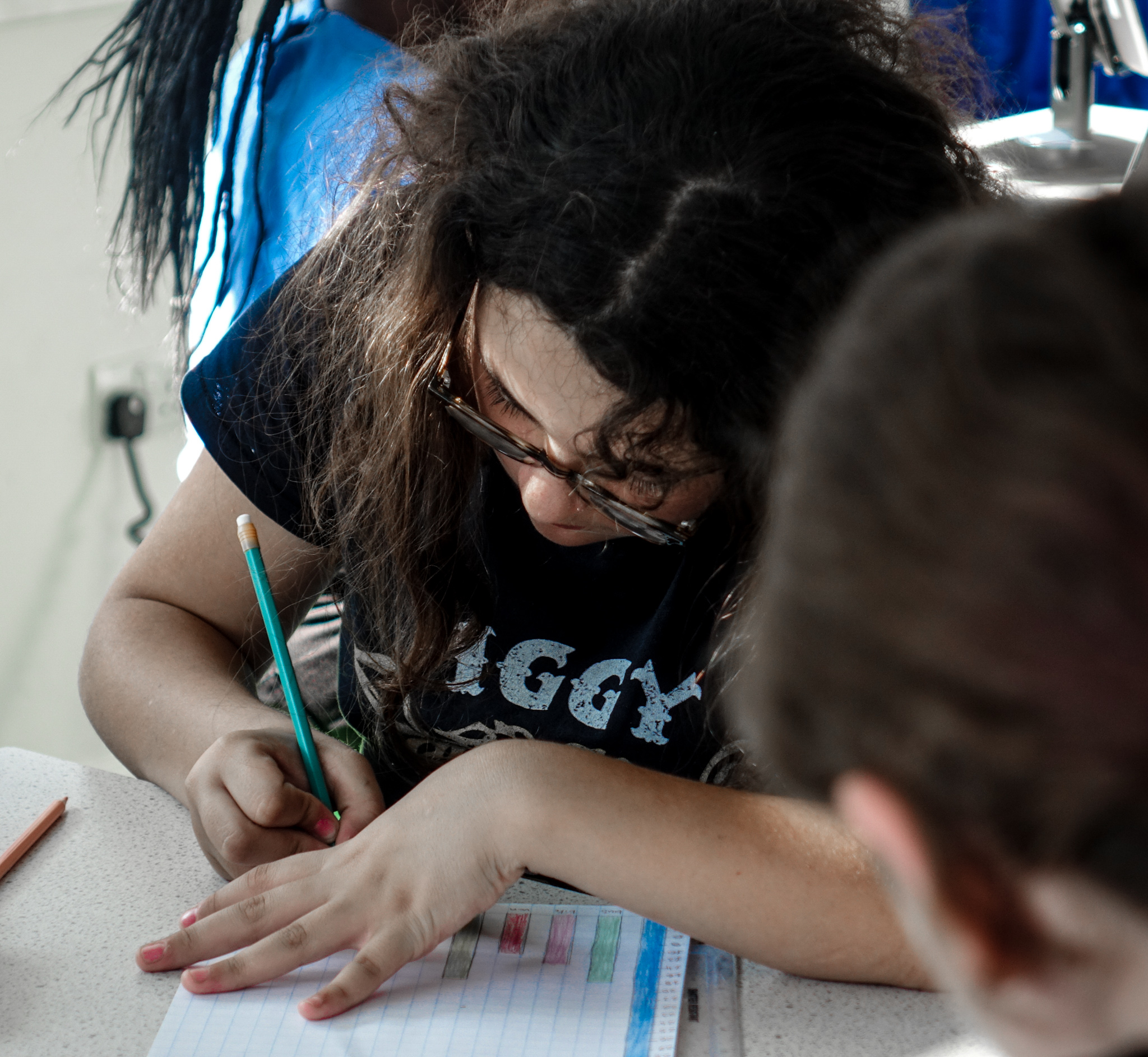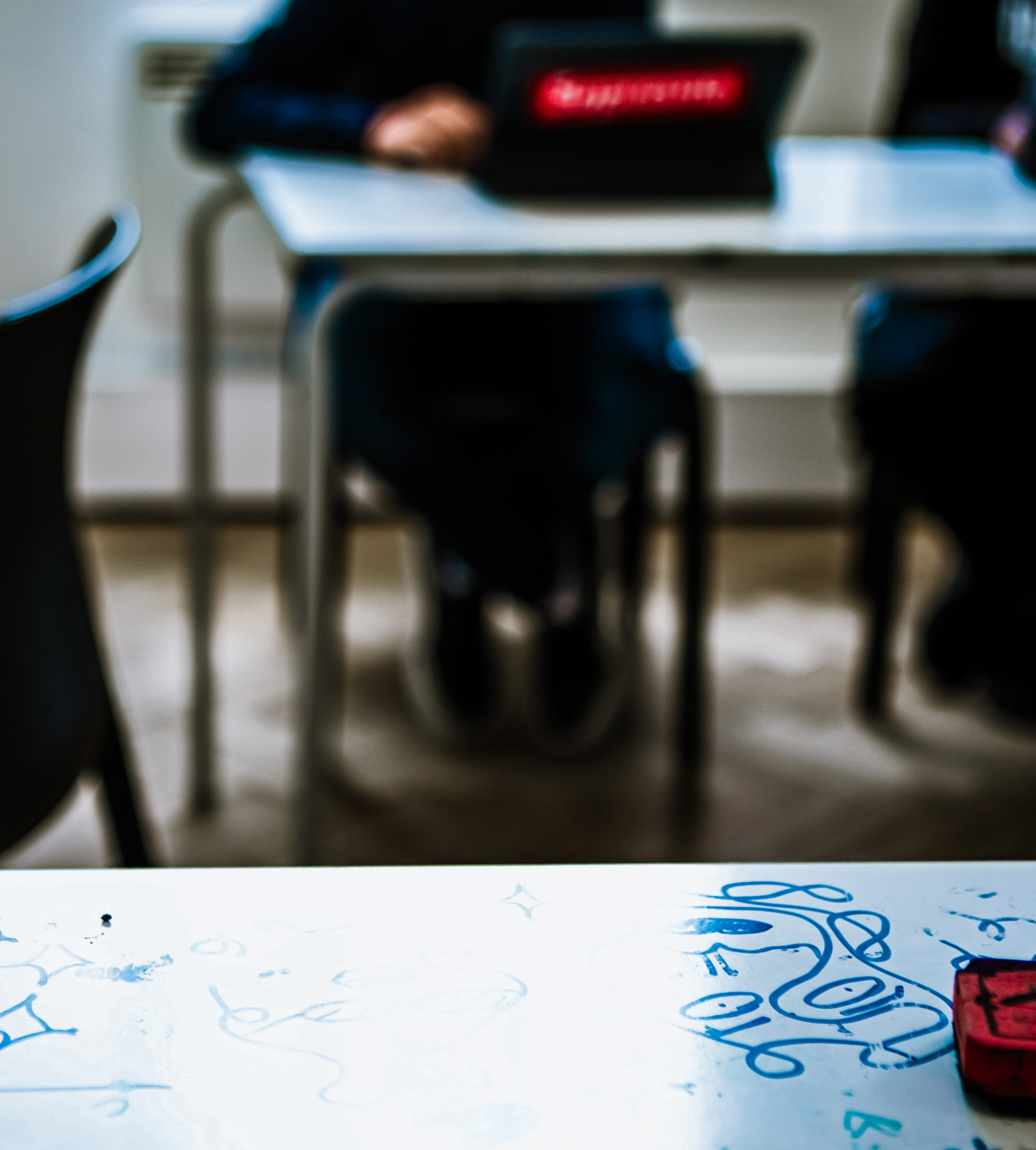
+

The curriculum is well designed, and learning is meticulously planned. Teachers ensure that pupils have the right knowledge before moving on to the next topic. They regularly review the curriculum to improve pupils’ learning.
– Ofsted, 2020Sharing knowledge is an excellent way to explore topics and boost students’ understanding of mathematical concepts. Following their unit on algebra, Grade 7 explored theoretical probability through real-life applications. Over the course of a lesson, Grade 7 students each produced a model of a probability game, and calculated the probability of each outcome for their mini slot machines and wheels of fortune. Grade 7 collected data by testing these games on Grade 6 students: through this information, they were able to review how experimental probability differs from theoretical probability. We were pleased to see the two classes support each other’s learning so successfully.

Higher Level Mathematics Essays
One Higher Level (HL) Mathematics Extended Essay scaled up Dijkstra’s algorithm – a method to find shorter paths – to plan multiple global transport routes. This was an investigation with implications for climate change, international relations and economics.The pursuit of this task provides some insight into our student’s capacity for in-depth STEM research.
Grade 11 Mathematics Debate
In a session that led learners to combine their Theory of Knowledge and analysis skills, our IB Mathematics SL and HL students participated in a debate on the comparative value of quantitative and qualitative investigation methods. The two classes considered the best way to collect and present mass data in the context of the global COVID-19 pandemic, taking into account the societal impact of statistics across the world and varied cultural responses to different types of information. Practising the comparison of different approaches is a form of support for learners as they approach their IB exams and consider further studies at university level.
Mathematics (Group 5)
Mathematics (Group 5) is a compulsory part of the International Baccalaureate Middle Years Programme and Diploma Programme, through which students develop “confidence, perseverance, and independence in mathematical thinking and problem-solving”*, with an appreciation of how these skills can be transferred to a range of real-life situations.
Middle Years Programme
In the Middle Years Programme, IB Mathematics is explored in depth through experimentation, questioning and discovery. The programme is driven by a curriculum that gives students the opportunity to develop “powers of generalization and abstraction” and appreciate how developments in technology and mathematics have influenced each other.
Diploma Programme
In the Diploma Programme, students continue to focus on their problem-solving skills, working through different units of mathematics, persistent, logical, creative, and critical thinking. Depending on their interests and intentions for further study, students may select either ‘Mathematics: Analysis and Approaches’ or ‘Mathematics: Applications and Interpretation’ as their IB Mathematics Diploma subject. Both options challenge students to gain a comprehensive and synthesised understanding of the categories and processes of mathematical inquiry, mathematical modelling, and technological applications of mathematics. Students’ development of strong technology skills throughout their Diploma Programme studies of IB Mathematics prepares students to intellectually perceive the links between theoretical and practical mathematics.
At Halcyon, our students enthusiastically pursue opportunities to showcase their problem-solving, inquiry, reasoning and communication skills, in addition to their broader knowledge of Mathematics. Many fascinating and challenging questions have been explored by our students in their Diploma Programme Extended Essays – see their examples of work below.
*Quotations are taken from the International Baccalaureate Subject Guides. Read more:
MYP Curriculum
DP Curriculum
UKMT: Mathematics Challenge
Halcyon’s IB Maths students regularly participate in the UKMT (UK Mathematics Trust) Junior and Intermediate Challenges alongside other schools. The Maths Challenge is an opportunity for students to use their IB Mathematics skills to find solutions to unfamiliar problems, and our classes regularly return to Halcyon with excellent results. Over the course of several UKMT competitions, many of our students have also been selected to compete in the Maths Olympiad and Pink Kangaroo challenges – and our IB Maths Club, a lunchtime Extra-Curricular, is one of the ways in which we guide students to success.
Coding
As an international school in London, we are able to enjoy a range of local connections and resources that enhance our students’ learning experiences. We provide our learners with access to coding courses, and our students have challenged themselves to learn programming languages including Python and Java – with excellent results! Mastering key coding concepts and techniques will support Halcyon students interested in STEM as they consider university courses.
Whiteboard tables
To engage students in exciting mathematical challenges, we provide opportunities for learners to present their work in a variety of ways and enhance collaboration in the classroom. Our mathematics classrooms and our open learning spaces contain whiteboard tables: these can be drawn on and cleared as students work through class materials and find solutions to problems, individually or in groups.
Modelling Software
Desmos, Khan Academy, MyMaths
Our students can harness a variety of digital tools to support their learning. Our use of Educational Tech in lessons is targeted at enhancing learning experiences through facilitating collaboration and engagement, offering students a toolkit of methods to present their work and conduct an assessment of their knowledge. Students can revise material in further depth through digital courses on Khan Academy and MyMaths, as well as a relevant course book, or model their data collection and analysis on their computer via Desmos.
Maths Inspiration lecture series
As part of supporting our students’ higher education aspirations, our subject teams take their classes to Inspiration Lectures with Maths Inspiration, designed to encourage learners to think about how they can apply their passions in maths, English, history and more to thrive at university and beyond. Previous lectures at a central site in London have included a guide to Cyber Security – a possible career for those set on a future in mathematics – as well as sessions discussing the computational limits of data collection and statistics.

Whiteboard tables can be found in most Halcyon classrooms, providing a number of collaborative and creative ways for our students to work.
We invite you to explore the full range of subject areas in the IB Middle Years Programme (IB MYP) and the IB Diploma Programme (IB DP), including language acquisition, mathematics, science, the IB core, and more. You can also review students’ subject options at both Higher Level (HL) and Standard Level (SL) in the Diploma Programme, which may help your family think about a subject combination that will provide a good foundation for a range of courses at universities and colleges around the globe.